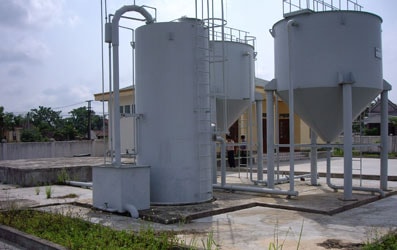Clean water for rural areas – Effectiveness and emerging problems
(Baonghean) –The implementation of the National Strategy for Rural Water Supply and Sanitation in Nghe An province has proven the effectiveness and sustainability of the program, while changing people's awareness and gradually renewing the current image of rural areas.
In recent years, along with promoting economic, cultural and social development, the issue of clean water and environmental sanitation (WSS) in rural areas has also received attention from many levels and sectors. This is considered one of the basic premises to implement the policy of industrialization and modernization of rural agriculture in Nghe An province, contributing to the construction of new rural areas in a civilized and modern direction.
According to Mr. Phan Bui My - Director of the Center for Rural Water Supply and Environmental Sanitation (NSH-VSMTNT) Nghe An: Up to now, more than 80% of rural people in the province have access to clean water according to the criteria set by the People's Committee, of which more than 23.1% have access to clean water according to the standards issued by the Ministry of Health. Over 60% of families have clean toilets and livestock barns. Building clean, green villages is becoming a competitive movement for the entire population. Nghe An province has invested in building many small and medium-sized centralized water supply projects. These projects have demonstrated the effectiveness and sustainability of rural water supply, while changing people's thinking and awareness of clean water issues, as well as gradually renewing the current image of rural areas.

Clean water supply project in Nghia Dong commune (Tan Ky district) - one of the effective projects.
In addition to investing in infrastructure, information, education and communication on clean water and environmental sanitation have also been promoted. The team of propagandists has been strengthened from the district down to the grassroots and has operated effectively, contributing significantly to raising people's awareness. The propaganda on NS-VSMT focuses on mobilizing the community, introducing technical technology, sustainable materials as well as training in management, operation and maintenance skills. Thereby helping people better understand the importance of water supply works and join hands to protect them.
Through investigation, many projects have been and are being effective such as: Centralized water supply projects in Dien Nguyen, Dien Thai, Dien Dong communes (Dien Chau); Hop Thanh, Tho Thanh (Yen Thanh); Nghia Dong (Tan Ky); Quynh Xuan, Quynh Doi (Quynh Luu)...
With the strong investment of the state, the face of rural areas, remote areas has changed significantly. With clean water from water supply projects, it has not only helped people in remote communes to escape the situation of having to go dozens of kilometers to get water, having to wait for every drop of rain in the dry season, but also helped people ensure their health when using clean, hygienic water.
In 2011, the Provincial Rural Water Supply and Sanitation Center strives to complete the task of supplying clean water to meet the standards of 02/BYT, increasing the rate from 23.1% to 25.5%. At the same time, promote the collection and treatment of waste, garbage, wastewater, improve the environmental landscape, prevent epidemics, especially in areas frequently affected by storms, floods, droughts. Inspect and evaluate domestic water supply service activities in all localities, evaluate the technical status, water quality, and efficiency of construction.
However, in recent years, the situation of water resource depletion, pollution, and environmental pollution has been complicated, causing the rate of rural people using clean water according to the criteria of the Ministry of Health to be low, and customs and practices in some localities are still backward, which has affected water resources and living environment. The widespread use of pesticides, free-range livestock and poultry, indiscriminate forest exploitation, unsanitary toilets, domestic waste, industrial waste, and medical waste that have not been properly treated have polluted the environment and water resources, especially in densely populated areas, increasing epidemics and affecting people's health and lives.
Dang Nguyen
